Best Shampoos
Best Shampoo for Oily Hair

Best Shampoo for Dry Hair
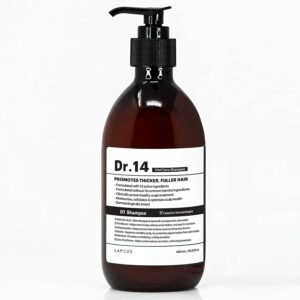
Best Shampoo for Thinning Hair
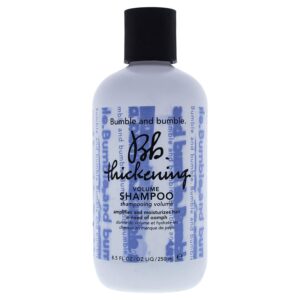
Best Shampoo for Dandruff
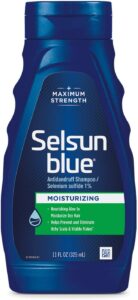
Best Shampoo for Colored Hair
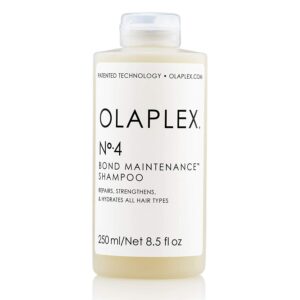
Best 2 in 1 Shampoo & Conditioner
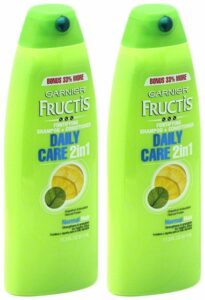
Best Natural Shampoo
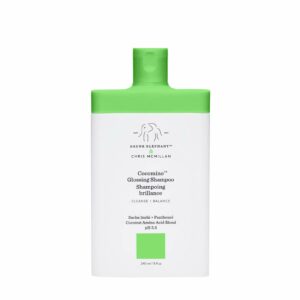
With so many shampoos available on the market, finding your perfect match can be overwhelming. We’ve stepped up and gathered the best shampoos for a variety of hair types to help your mane be healthy and happy.
What to keep in mind when choosing the best shampoo for your hair
Start with your scalp
In order to achieve that healthy, glowing hair you so crave, you need to start at your scalp. Your roots live in your scalp and are the foundation of a healthy head of hair. If you have a dry, tight, itchy scalp, then go for something with hydrating ingredients. If you have oily roots, stick with shampoos that are volumizing that won’t weigh your hair down. Those who have oily roots with dry ends should still find a shampoo to clarify and volumize the roots and let their conditioner hydrate their ends.
Know your hair type
Your scalp is important, but you should also think about your hair’s needs overall. By that we mean if it’s color treated, if it’s thick or thin, if you struggle with dandruff, etc. Each hair type can benefit from different shampoo properties and ingredients. Learn more about each hair type and what ingredients are helpful in our reviews below.
Avoid these ingredients
Before you use a new shampoo, be sure to check the ingredients list. There are a handful of dangerous (and sadly common) ingredients in shampoos on the market today. Here are a few of the top ingredients to avoid in your shampoo:
- Sulfates – Over 90% of shampoos have sulfates in them. Sulfates are what cause your shampoo to foam up as you lather it. Once rinsed out, they strip your hair and scalp of their much needed natural oils and moisturizers, leaving behind dryness, flaking, and irritation. There’s also the potential of sulfates forming carcinogens, which can lead to kidney damage and hormone disruption.
- Parabens – Parabens are another popular and harmful ingredient. They mainly act as a preservative to prolong the shampoo’s shelf life. Parabens can cause skin irritation, disrupt your natural hormone balance, affect reproductive health, and cause neurotoxicity. They can also be called xenoestrogens.
- Polyethylene glycols – These are thickening agents known for stripping the hair of moisture and causing breakage. They have also been classified as a developmental toxicant, meaning it can damage or disrupt human development, and has been linked to numerous types of cancers.
- Synthetic fragrances and colors – Artificial scents and colors are harmful to your skin and can cause a variety of health issues. Most of the chemicals used to create fragrances can lead to infertility, irritation, hair loss, asthma, and cancer.
Best Shampoo for Oily Hair

This lemony fresh clarifying shampoo by Paul Mitchell is perfect for oily hair. It helps minimize overall oil production so your hair becomes less oily over time by deeply cleansing and removing buildup. The formula is also color-safe and leaves your hair beautifully clean, shiny, and voluminous. An added tip is to use this shampoo prior to using hair masks or treatments to allow them to better penetrate your hair.
Best Shampoo for Dry Hair

This LAPCOS shampoo is made with 14 quality ingredients such as biotin, hydrolyzed collagen, salicylic acid, and zinc that are proven to improve overall hair health. The cleansing and moisturizing formula is also silicone and paraben free to remove build up without stripping your hair of its natural oils. These properties start at the scalp to fortify each strand and lock in moisture, leaving behind strong, shiny, and voluminous locks.
Best Shampoo for Thinning Hair

This thickening shampoo by Bumble and Bumble is perfect for those with fine or thinning hair. It’s lightweight formula builds volume in the shower and gives your hair a lift while moisturizing and sealing split ends. The highlighted ingredient, Panthenol (a pro-vitamin B5 and acetamide MEA), helps balance the moisture in your hair to leave it looking voluminous, healthy, and silky soft.
Best Shampoo for Dandruff

The Selsun Blue maximum-strength anti-dandruff shampoo is made with 1% selenium sulfide to prevent an itchy scalp and eliminate visible dandruff flakes. It is also formulated with 8 intensive moisturizers to help nourish and moisturize dry hair, including aloe and vitamins B5 and E. Thanks to these, you can target dandruff control without skimping on healthy looking and feeling hair overall.
Best Shampoo for Colored Hair

This color-safe shampoo by Olaplex is a highly moisturizing, reparative shampoo that leaves your hair shinier, stronger, healthier, and easier to manage after each use. It’s formulated with the Olaplex Bond Building chemistry to repair and maintain bonds within each strand, eliminating frizz and flyaways, reducing breakage, and protecting chemically-treated color.
Best 2 in 1 Shampoo & Conditioner

The Garnier 2-in-1 paraben-free formula is infused with natural protein and grapefruit antioxidant to refresh and energize your hair. It’s gentle enough for everyday use, yet strong enough to deeply clean and nourish your hair from the inside out. The shampoo works deep to strengthen your hair while conditioning the surface for a beautiful, healthy shine.
Best Natural Shampoo

This Drunk Elephant natural shampoo is sulfate-free and safe for chemically-treated color, made with a gentle blend of nourishing oils, amino acids, and other hydrating agents to promote clean, moisturized hair. This formula creates a creamy foam that removes buildup without damaging the hair or stripping color. Drunk Elephant only uses non-irritating, small-molecule ingredients that skin can easily absorb, understand, and use, while avoiding the “Suspicious 6” (silicones, essential oils, chemical screens, SLS, drying alcohols, and fragrance/dyes).
FAQ about Shampoo
How often should I be shampooing my hair?
It’s recommended that you should shampoo your hair at least once a week to help remove buildup from styling products, dead skin cells, etc. Your hair may need more frequent washing if you participate in activities resulting in excess perspiration or if your hair is exposed to outdoor particles, like pollen, smoke, or dust. However, be sure not to over-shampoo and be aware of using “hard water” with high mineral levels. This can strip hair of natural oils and cause hair and scalp dryness.
Should I be changing my shampoo regularly?
The subject of needing to frequently change up your shampoo has been a long debated topic in the hairdressing community. It is true that you should change out your shampoo on a regular basis, but not because your hair “gets used to it” or because the shampoo simply stops working. Shampoos alter your hair’s natural chemical balance, thus leading us to see a change in the results you get from it after awhile.
The best recommendation is to select a couple of shampoo formulas that you like. One could address a specific problem you may want to address and the second one would balance those effects. For example — if your regular shampoo is a moisturizing shampoo, using a clarifying shampoo every third or fourth time you shampoo will ensure your hair stays as clean and healthy as possible without having to go out and buy new shampoos regularly.
What are some signs I need to change my shampoo?
If you aren’t sure you’re using the right shampoo, there are some telltale signs to tell you it’s time to switch it up. If you experience any of the following, it may be time to find a new shampoo:
- Your hair gets frizzier, more tangled, or unmanageable. This could be a sign that your hair isn’t getting enough moisture or your shampoo is stripping it of its natural oils.
- Your hair lacks volume or shine. If your hair is dull and limp after a regular wash, then your shampoo might not be doing its job right. Try a volumizing or strengthening formula.
- Your hair becomes excessively oilier or drier than it was originally. While a changing environment or weather conditions could be to blame, adjusting your shampoo accordingly will help combat these changes.
- Your dandruff doesn’t go away or comes back even worse than before. It may be a sign that the fungus causing your dandruff in your hair has become resistant to the antifungal agent in your shampoo. Ask your doctor for recommendations for alternate anti-dandruff shampoos that could help.

